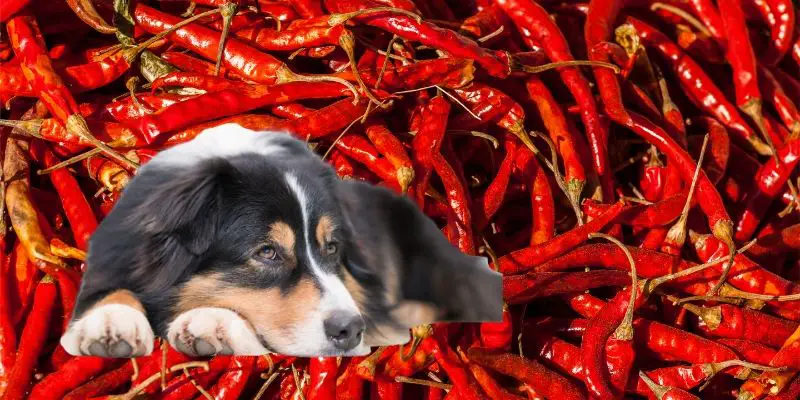Are you interested in a particular topic related to the question “Can dogs eat spicy food?” Then use the table of contents below to jump to the most relevant section. And you can always go back by clicking on the black arrow in the right bottom corner of the page. Also, please note that some of the links in this article may be affiliate links. For more details, check the Disclosure section at the bottom of the page.
Here's what we'll cover:
There are many tiers of spicy, and each person has various level of tolerances for the heat he or she can bear. How about dogs? In case your family is in love with hot food, your dog probably tasted something spicy. But is it all right to give spicy food to your dog, or should it be strictly out of limit? Let us start with the nutshells and answer the following question:
Can dogs taste spicy?
Dogs usually eat the same food daily, so it’s a given that they get sick of it. Is the possible explanation for this lack of options or their ability to taste? It may be believed that the taste bud of a dog is very sensitive in comparison with that of a human. But it actually occurs that it’s weaker! People have approximately 9000 buds, while dogs only ~1700. The four main tastes identified by humans are sweet, salty, sour and bitter.
On the other hand, the taste buds of pups failed to develop salt receptors throughout their evolution. This is because they eat a carnivorous diet, which usually is high in sodium.
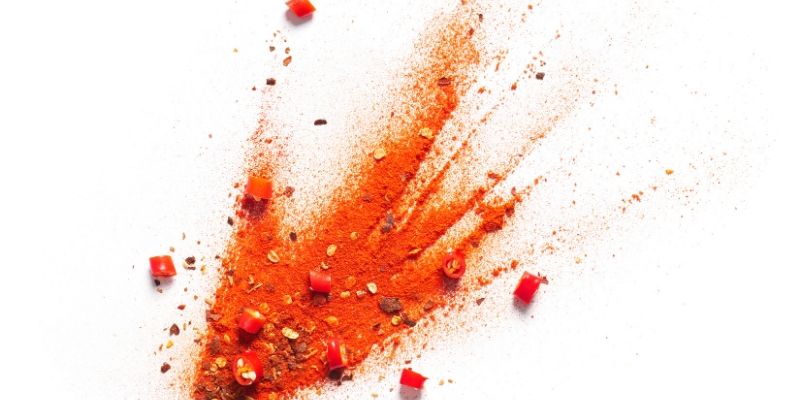
That is why dogs taste buds are not as well tuned as ours. They use their smell when they sample food instead. Canines might not have the very same taste buds as humans, but they still react to spicy foods. It doesn’t matter if in your eyes the food is not TOO spicy, your dog most likely won’t agree with you. Anything with a slight hint of spicy can be unbelievably hot and traumatic for your pup.

Can dogs eat hot sauce?
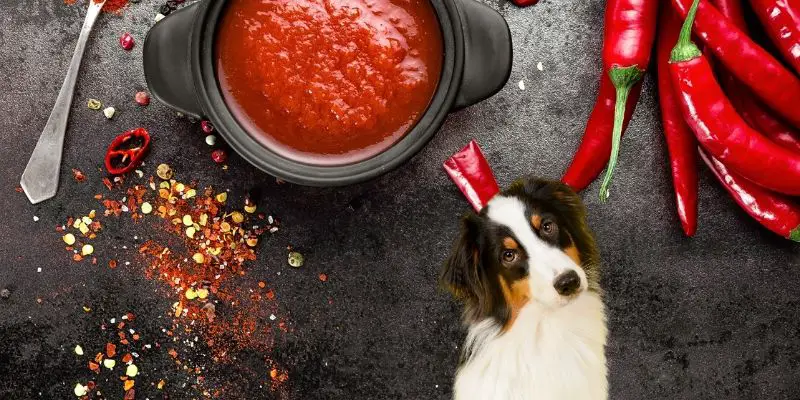
No. hot sauce is unacceptable for dogs. These spicy combinations often contain chili, an utterly inappropriate food for a dog to eat. Take into account all the toxic ingredients of a hot sauce.
Luckily, it is not known that spicy foods cause irreversible damage. However, this supposes that your dog did not eat a particularly brutal and intense variety. A dog eating hot sauce regularly might face many health concerns in the future.

Can dogs eat hot peppers (Cayenne in particular?)
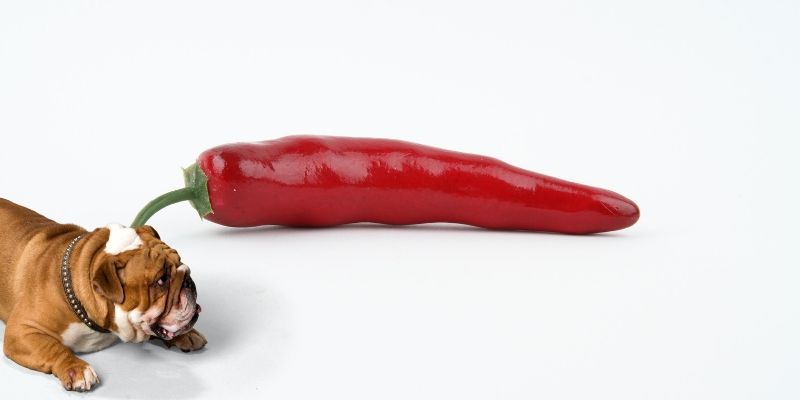
Certainly, cayenne pepper can pose a risk to your canine, if it is eaten or even interacts with the skin. Cayenne can trigger the burning feeling of your dog’s stomach, throat, and intestines and can cause him potty troubles. And some blogs from petcare even claim to be toxic.
Can Cayenne also be beneficial for pooch diet?
“Cayenne is probably the most useful of systemic stimulants, regulating blood flow and equalizing and strengthening the heart, arteries, capillaries, and nerves.”
as believes Randy Kidd, DVM, Ph.D.
Cayenne is an elixir for lymphatic and digestive systems. It also has the power to sustain blood pressure, bringing it to a healthy range. Canine cardiovascular disease may trigger weakness, vomiting, shortness of breath, chronic cough, and rapid pulse, all of which would be eliminated if cayenne is introduced to a dog’s food.
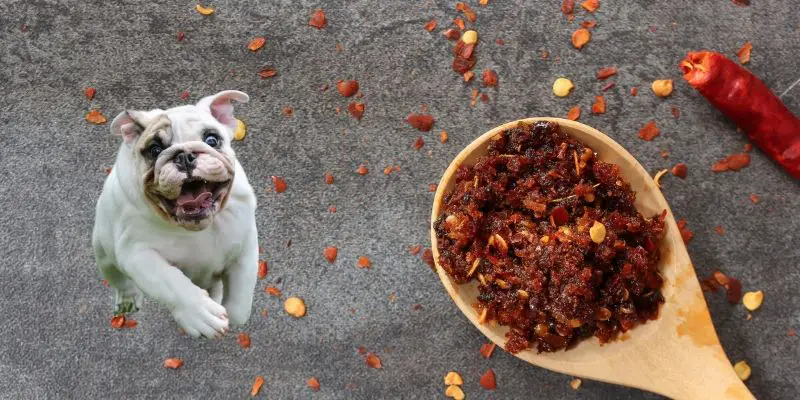
Cayenne’s heat effect extends across the body, warms a dog’s cold paws and improves the wellbeing of its veins and capillaries. We won’t be going in the in-depth aspects of Cayenne pepper health benefits in this article. But it was worth mentioning its healing properties given the context.

Is spicy food bad for dogs?
The main concern is that your pup will have a stomach upset. Diarrhea, nausea, and pain in the abdomen, can also happen if your pet overeats of the spicy food. Remember how you feel if you eat a lot of spicy food. Your dog will respond in the same way.
Another issue is the specific ingredients that might accompany that type of dishes. Jarred or bottled items like hot sauce along with lots of flavors include the seasoning combination that might be harmful to your dog, for instance, onion and garlic.
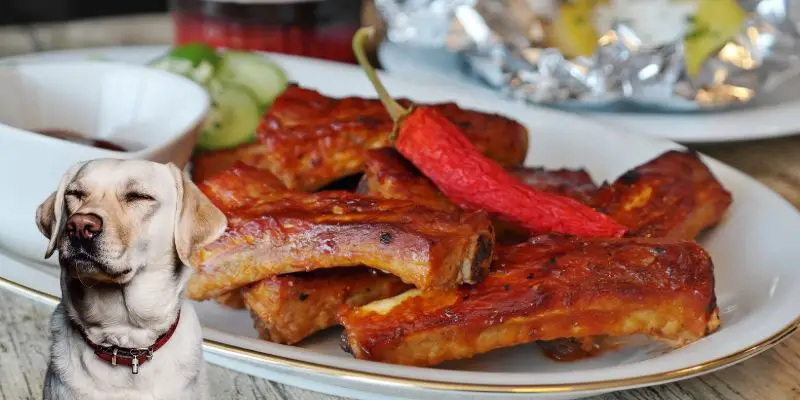
Spicy foods not only trigger watery stools in your dog but occasionally can cause more severe health conditions. One example of this is pancreatitis. This disease that sometimes can be life-threatening affects your dog’s pancreas inflammation.
Most dogs develop pancreatitis if they eat an excessive amount of fatty foods. Spicy foods can, however, also be an offender. Reduce your pet’s chance to develop this disorder. Skip spicy food.

My dog ate spicy food. What do I do?
If the dog ate spicy food wicked hot sauce may cause irritable bowel damage, and possibly longer-term internal harm. That means great problems for the pet, so veterinary visits may be unavoidable.
A further thing to observe is your pup’s eyes. Dogs can be chaotic eaters. Some signs of a dog’s reaction to spicy foods include: whining, shaking the head, backpacing, etc.
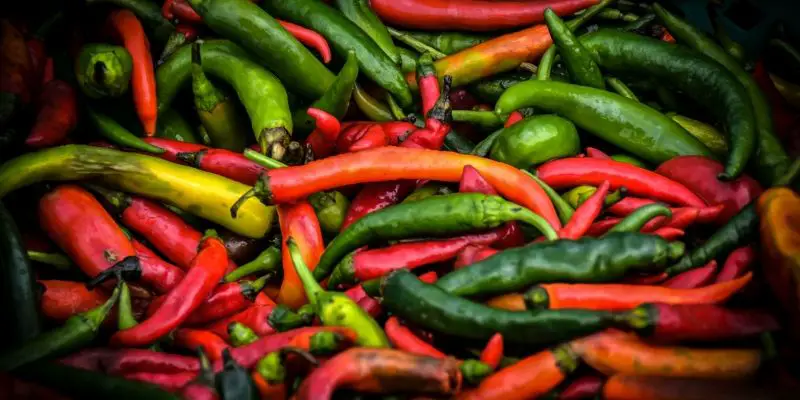
Although most spicy foods are not poisonous to dogs, they can lead to distress and need to be avoided. As always, make sure you contact your veterinarian if your dog shows long-lasting discomfort, disease or even pain. Ensure your dog doesn’t get dehydrated.
It may be helpful to give him milk or bread to relieve the symptoms. However, if side effects do not pass or you get further concerned, you must have taken the pup to a doctor for a complete check-up.

Dogs and spicy food. Summary.
Think twice before offering spicy food to your dog, even if he enjoys the smells and begs for a bite.
Some pets are much more tolerant of spices than others. But overall this type of dish may cause discomfort, like stomach pain or diarrhea.
To play it safe don’t feed any spicy foods to your dog. Those are simply too complex to process by a dog’s stomach.
Save your four-legged friend from stomach distress and keep spicy food away from your dog’s reach at all times, even when he gives you that look. Healthy dog appropriate treats are an excellent idea to stop your pup from food begging.
You can try Naturals Dog Treats by Zuke’s we’ve found on Amazon. Many dog owners find that those are great for redirecting the pet when he or she finds something intoxicating.
Credits: thanks for the cover photo to Jonathan Niederhoffer on Unsplash.

